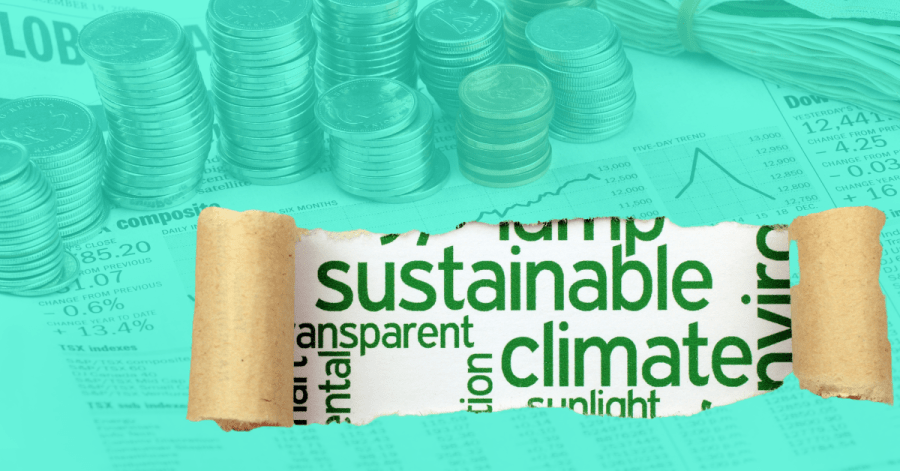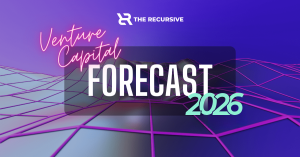Sustainability considerations are poised to shape the private equity investment market in the years to come. Data shows that ESG assets have soared to a record $37.8 trillion by the end of 2021 and may reach $53 trillion by 2025 – a third of all global assets under management. As a key sector, climate tech funding represented more than a quarter of every venture dollar invested in 2022. According to the Global Impact Investing Network, more than 88% of impact investors reported that their investments met or exceeded their expectations.
At the beginning of 2022 and throughout the year, The Recursive covered various sustainability investments and new funds launching in Central and Eastern Europe. So, we wondered: how did these funds overall perform in 2022, what were their highlights, and what trends and next should we expect in 2023?
Here are some of the milestones mentioned by CEE funds with sustainability investments:
- The closing of new funds targeting solutions that can bring environmental and social returns, in addition to financial returns;
- New investments in key sectors such as food tech, education, the circular economy, and renewable energy;
- Investors hiring of strategic positions to oversee the processes of measuring and reducing their environmental impact;
- Funds partnering with other players to educate and mobilize the general public and policy makers around sustainability issues.
Sustainability investors also shared their plans for 2023:
- Private equity investors will be following the climate tech vertical closely, with new funds to be announced;
- Certain funds are also looking to align with the standards defined under Sustainable Finance Disclosure Regulations Article 9 Funds – funds that have sustainable investment or a reduction in carbon emissions as their objective;
- One fund is aiming to get portfolio companies engaged with ESG standards via specialized onboarding processes;
- Meanwhile, impact investors aim to continue raising awareness about impact investing as a necessary tool to achieve the UN SDGs.
Continue reading to get specific insights into the 2022 activity of several funds with ESG objectives from Central and Eastern Europe, as well as their plans for 2023.
Rockaway Ventures Fund
About the fund: Part of Rockaway Capital, Rockaway Ventures Fund is a Czech Republic-based VC fund eyeing startups in Central and Eastern Europe that are digitalising traditional industries and following environmental, social, and governance (ESG) principles.
The Recursive: What were some key achievements for your fund in 2022?
Andrea Lauren, General Partner: In April 2022 we made the first close of the fund which incorporates a total of 5 investments so far.
Shortly after its establishment, the Rockaway Ventures Fund managed to invest in two promising startups: the fast-growing Estonian startup Lingvist, which is developing an educational language platform that effectively reduces the time needed to master a new language, or in Vivere, a German company which based on demand and comprehensive data analysis invents, develops and sells innovative products in the field of FMCG.
In 2022 we made three more investments: in a greek high-tech used cars B2C platform Spotawheel, a Czech online campervan and recreational vehicle rental site Campiri and a German Freeway Camper.
What will you be focusing on in 2023?
We will continue to invest into early-stage European startups primarily in CEE and DACH, mostly to fund their geo-expansion. Apart from the industries we supported last year we see a lot of traction in several verticals whose importance has been highlighted by the macro-events of 2022, such as climatech.
Feelsgood Social Impact Investment Fund
About the fund: Feelsgood Social Impact Investment Fund is designed to invest in Croatian and Slovenian startups that have typical private equity/venture capital for-profit goals and are ready to scale, but also can deliver measurable social impact. They are based in Zagreb, Croatia.
The Recursive: What were some key achievements for your fund in 2022?
Renata Brkić, Managing Partner: Feelsgood started investing in Croatia and Slovenia in the second half of 2021.
Until now, we have invested in eight companies, seven from Croatia and one from Slovenia. A total of €7 million has been deployed in these eight companies.
In addition to impact investing – which is the main purpose of our work, we have been active in educating and mobilizing the general public and policy makers in both countries in order to raise their awareness of the importance of impact investing. In that respect we have – In cooperation with the Unicredit Group and the NGO Professor Balthazar – published the Croatian version IMPACT, a book written by Sir Ronald Cohen and distributed it to the important stakeholders throughout Croatia.
What will you be focusing on in 2023?
We will continue deploying capital in companies from Croatia and Slovenia in the coming years until the € 30 mil size of our fund is exhausted. We are now in the due diligence process with three companies into which we expect to invest in early 2023. As members of the most relevant impact organizations in Croatia, Slovenia and worldwide – such as the GSG, EVPA, Invest Europe, PRI and CVCA – we will continue our work on promoting the impact investing as a necessary tool to achieve the 17 Sustainable Development Goals set by the UN until 2030.
World Fund
About the fund: World Fund is a climate tech venture fund based in Berlin, Germany. From energy, food, agriculture, and land use, to building materials, manufacturing and transport, World Fund is investing in European climate tech with a climate performance potential (CPP) of at least 100Mt CO2e emission savings per year.
The Recursive: What were some key achievements for your fund in 2022, and specifically regarding CEE?
Danijel Višević, General Partner: The key achievements for World Fund this year include bringing on strategic LPs such as the European Investment Fund (EIF), UK Environmental Agency’s Pension Fund (EAPF) and PwC Germany. We are especially proud of the €50 million investment from EIF. They all support us in our mission to back entrepreneurs building climate tech that can save at least 100 Mt CO2 emissions per year and generate superior returns.
Since we launched last year we’ve already been able to compete for the best deals against top tier VCs from North America, which is all down to our scientific knowledge, broad network and hypothesis-driven approach to investing. There has been significant uptake for our portfolio companies, 20% of which is from CEE including Juicy Marbles, which is based in Slovenia.
We’ve also grown the team to over 13 people and almost 25% hail from across the CEE region, including Croatia, Bosnia, Kosovo and Latvia.
What will you be focusing on in 2023?
As we look to 2023, we’re going to be investing more across CEE and want to increase our footprint in the region, including bringing on a Polish-based venture partner to support our activities there in finding the next generation of climate tech companies.
When it comes to investing, we focus on the five biggest greenhouse gas emitting sectors – energy, farming, agriculture and land use (FALU), manufacturing, construction and transportation. We have the financing and perseverance to support European companies from seed to Series B which are building the game-changing technologies that will enable a regenerative world.
We will also be doubling down on our methodology, Climate Performance Potential (CPP), which enables us to identify technologies with the biggest decarbonisation potential. We’re working with organizations such as Project Frame, a coalition of venture capital and private equity investors, to advance the work on open-source frameworks and tools that will better identify the climate performance potential of startups.
Urban Impact Ventures
About the fund: Urban Impact Ventures is a transformative investor on a mission to improve urban quality of life in Europe. Their inaugural UIV Fund I was launched on March 31, 2022. They are based in Rotterdam, The Netherlands, with a team split between Rotterdam and Sofia offices.
The Recursive: What were some key achievements for your fund in 2022?
In March 2022, we completed the first close of our UIV Fund I. By July 2022 we have already welcomed four companies to our portfolio.
The investments were made in companies active in the fields of urban sustainability and decarbonization – the two core investment themes of the Fund, and included:
- IBIS Power, a Dutch a developer of a rooftop renewable energy system for medium- and high-rise buildings. It combines solar PV and wind power generation capacities, producing 6x more energy than a traditional solar roof.
- The Amsterdam-based BIYU, which makes ownership of products obsolete by giving city dwellers easy on-demand or subscription-based access to high-quality less-frequently used products.
- Modeshift, with а SaaS platform for urban mobility management that enables cities to reduce congestion and emissions and foster inclusion and labor force mobility.
- Future, a US carbon footprint data science company leveraging AI to build an advanced carbon accounting platform for households and incentivizing the shift to low-carbon products and services by financial incentives and cashback.
What will you be focusing on in 2023?
In 2023 we expect to grow the fund further towards the goal of 25 million of AUM (assets under management); we foresee a next close for Q1 of 2023.
We will increase our portfolio by actively sourcing investable opportunities from our two focus geographies of The Netherlands and Germany, and opportunistically from the rest of Europe.
We will continue to actively manage for impact on a company level, as well as aligning our fund-level impact tracking monitoring and reporting to the requirements of SFDR article 9.
BlackPeak Capital
About the fund: BlackPeak Capital is a Private Equity firm focused on investing growth equity in the main economies of Southeast Europe. They currently manage BlackPeak Fund I and the BlackPeak Southeast Growth Equity Fund. They have offices in Sofia, Bulgaria. The fund is voluntarily focused on ESG, and registered under Article 6 of SFDR (funds without a sustainability scope).
The Recursive: What were some key achievements for your fund in 2022?
Rossen Ivanov, Managing Partner: We had a successful 2022. We completed the final closing of our second fund, BlackPeak Southeast Europe Growth Equity Fund, at €126 million, surpassing the original target of €120 million.
With the new fund, we have invested in 3 regional leaders in their respective niches: Verdino – the #1 Romanian producer of plant-based food, euShipments – the #1 Bulgarian provider of logistics integration solutions to e-commerce companies, and Telelink Infra Services – a leading telecom infrastructure services provider in SEE with presence in the UK and Germany.
We signed our fourth deal in December, which we will announce early next year. Importantly, we are already working on a number of add-on acquisitions for our portfolio companies as part of our buy-and-build strategy.
We just exited Excitel, a portfolio company of our first fund, one of the leading broadband providers in the New Delhi area in India with more than 800,000 subscribers. While Excitel’s operations are in India, the core management and the development teams are based in Bulgaria.
We also expanded our team. Simona Stiliyanova joined us as a Marketing and ESG Director focused on leading the process of measuring and reducing our environmental impact and implementing highest social, ethical, and governance standards. We have started working with our portfolio companies to help do the same. As our team grew last year, we moved our office to a new state-of-the-art certified building according to the highest sustainability standards – as LEED Platinum v. 4.
We intensified our support for the Bulgarian Startup Association (BESCO) to help them devise and pass legislation to improve the investment environment in Bulgaria and the rest of the region.
What will you be focusing on in 2023?
We aim to complete 3-5 new deals in 2023 in our region of operation with focus on Romania, Serbia, Croatia, and Slovenia. Our pipeline remains strong with a number of opportunities in the IT, e-commerce, niche manufacturing, and healthcare sectors, but we remain open to explore other industries as well. We are also working on a number of add-on acquisitions, enabling our portfolio companies’ inorganic growth.
ESG remains a priority and an important factor in our investment process. We have an ESG strategy in place and are now updating our E&S management system. We have the ambitious goal to get our portfolio companies engaged with a specially developed onboarding process and support throughout the way to more sustainable operations and less GHG emissions.
We are also looking to support NGOs like BESCO in all our countries of operations — Romania, Slovenia, Croatia, and Serbia — with the conviction that we can jointly learn from the most progressive global economic practices and implement them locally to enable Southeast Europe’s economic progress.








